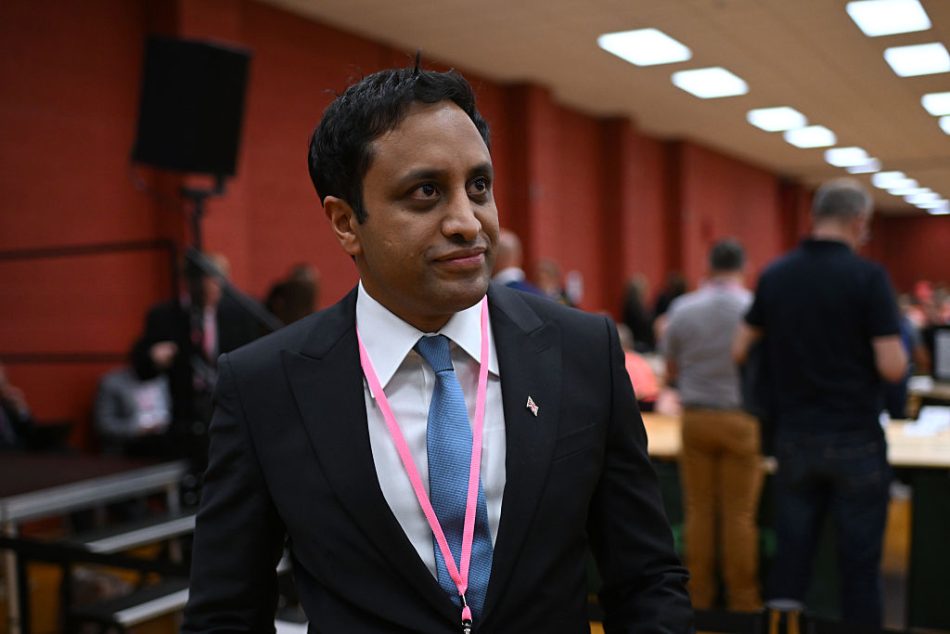On Monday, I sat down for a lengthy interview on Spectator TV with Zia Yusuf, the chairman of Reform UK. This weekend, many of his party’s 677 newly-elected councillors will come to London to hear from him on how to make the most of their bridgehead in local government. One thing that Yusuf is clearly thinking hard about is the role of these councillors in crafting Reform’s narrative for 2029. He believes that they will demonstrate that his party is fit to govern and expose the failings of the established parties in office.
Much of his focus will be fighting the Home Office in court to stop asylum-seekers being put up in Reform–controlled areas. ‘We’ve got a great group of lawyers, led by a KC, who are working for free, completely pro-bono, from their chambers in order to bring cases to resist the dispersal of illegal migrants’, he said. Yusuf is realistic about this: ‘Yvette Cooper is able to do things that no one in local government can – but even by having the fight, Reform will show how taxpayers’ money is being spent on forcing councils to billet illegal migrants.
As an ex-businessman, Yusuf has a nuanced approach to the thorny issue of remuneration too. ‘I would actually expect the average salary to increase’, he said, with regards to council chief executives, arguing that ‘compensation should be heavily tied to results.’ Crucially, Reform’s local election campaign was not on a platform of low council tax – but rather a policy of stamping out waste. Yusuf says that DOGE-style campaigns serve a dual purpose: as well as savings on staff costs, they prevent mission creep and further expenditure on programmes unrelated to frontline services. He promises a website and ‘a place whistleblowers can come forward.’
There are plans for innovations too. Yusuf says he wants a ‘potholes dashboard’ to publish transparent data on just where ‘millions of pounds’ are being spent in each community. It is part of his personal obsession with procurement, which he suggests is responsible for ‘most problems in this country.’ Yusuf cites ‘multi-million pound contracts going to local taxi companies with one bidder.’ Intriguingly, he argues that ‘Once our teams are fully gone through everything, I wouldn’t be the least surprised if the Fraud Squad wasn’t called in in certain cases.’
He promises a zero tolerance approach to councillors accused of any form of misconduct too. ‘If you’re caught up in one of those scandals’, he says, ‘you should expect us to respond in the way it would be appropriate for a party that has stood up very much against that sort of thing.’ That fits in with the attitude of experimentation that Reform has operated since last July. As I write in the Washington Post, the Farage approach to party management evokes the Ship of Theseus: elements of his ship are constantly changed over time, but always the vessel sails on.
Currently, the omens look good for 2029 – but stormy winds can always blow a ship off course. As one Tory remarked to me this week, Reform’s councillors will be treated as the equivalent of a parliamentary party. Opponents will scrutinise them closely; already, a handful of councillors have departed Reform for various reasons. ‘We’ve got people paying more attention to local government than they’ve done in 20 years’, jokes one source. Many Tories are counting on a Farage ‘blow-up’; some even make inquiries into the state of the leader’s mortality.
Yet with each passing month, it is getting harder and harder for both Labour and the Conservatives to put Farage ‘back in his box’. Reform now boasts more members than the Tories; next year it hopes to have more seats in the Senedd and Holyrood. Bigger parties are often better at accommodating big egos: Reform’s continued growth will enable it to withstand personal rows in the future. Farage may be the front and centre of the machine but Yusuf is happy to be the man behind it.







Comments